Our Members Asked:
Which supplements are important after bariatric surgery (i.e., weight loss or stomach-reducing surgery)? Are there any I should avoid?
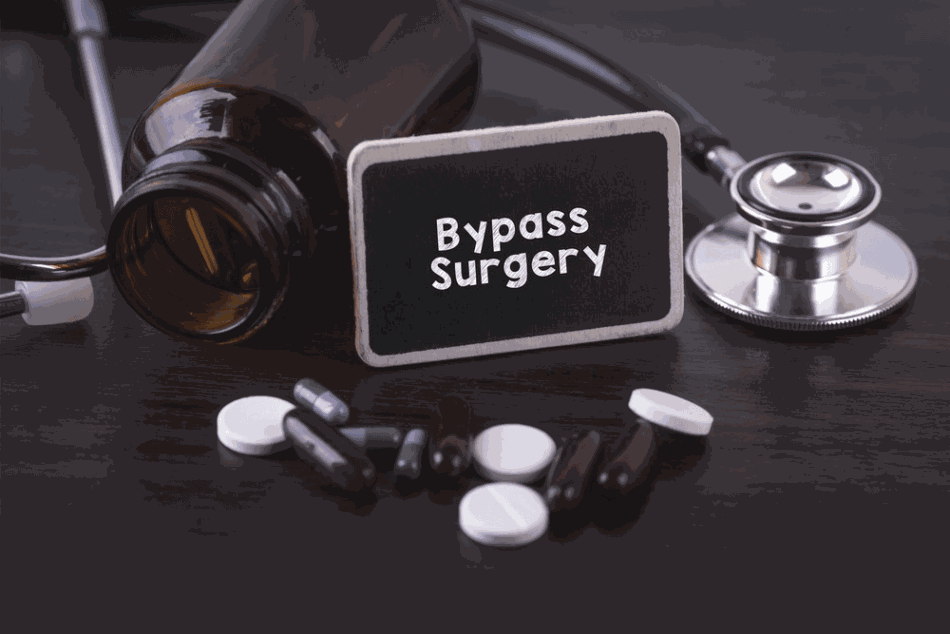
Answer:
Gastric bypass, gastric sleeve, and gastric band surgery reduce the amount of food and liquid a person comfortably digests in one sitting, leading to smaller meals and potentially, inadequate nutrient intake. In addition, gastric bypass (re-routing around the stomach) and gastric sleeve surgery (removing a portion of the stomach) reduce stomach acid and normal digestive action, leading to reduced absorption of various vitamins and minerals. The use of supplemental vitamins and minerals is recommended for gastric bypass and gastric sleeve patients, and sometimes for gastric band patients. According to the Cleveland Clinic, Iron, folate, vitamin B12, calcium, and zinc levels are thought to be the most affected after bypass and sleeve surgery.
Changes in digestion and nutrient absorption also mean that some supplements may not be well tolerated or absorbed by gastric bypass and sleeve patients. In general, all gastric surgery patients are advised to take supplements in sublingual, chewable, lozenge, or liquid form after surgery. Tablet, capsule and pill forms of supplements can be tried when the patient begins taking solid food (usually between 1 and 3 months after surgery), but they may still need to crush these into powder or cut the pill into smaller pieces. Similarly, certain forms of tablets and pills, such as enteric coated and time-release formulas should be avoided.
Be aware that transdermal vitamin patches are not a good substitute for prescribed oral vitamin supplementation, as they may result in vitamin deficiencies (Hoang, AACE Clin Case Rep 2024).
Information about specific nutrient needs and supplement options are discussed below. The American Society for Metabolic and Bariatric Surgery (ASMBS) provides specific dosage recommendations for a number of nutritional supplements, including some listed below, for both bypass and band patients, which you can see here.
Multivitamins
Almost all gastric surgery patients are advised to take a daily multivitamin. In its post-surgery guidelines for bariatric patients, the ASMBS recommends patients begin with a liquid or chewable formula, and progress to a tablet or capsule when it can be tolerated. Patients may be tempted to take children's formulas because they are often available in chewables and liquids, but these should be avoided because they may not be complete or provide recommended intakes for adults. Adult chewable and liquid formulas that have passed ConsumerLab.com testing can be found in our Multivitamin and Multimineral Review (which includes test results for a multivitamin designed for "bariatric" patients -- although it failed to pass one of our tests).
ASMBS also recommends that multivitamins contain at least 18 mg of iron, 400 mcg of folic acid, and some selenium and zinc; however, multivitamins containing iron should not be taken within 2 hours of a calcium supplement as they may compete for absorption.
Taking a multivitamin with food may help to improve absorption.
Calcium and Vitamin D
Calcium and vitamin D are important to help prevent bone loss that can occur during rapid weight loss. Vitamin D helps to support calcium absorption, and plays an important role in many other areas, like the immune system.
Gastric bypass, band, and sleeve patients are commonly advised to take a calcium supplement. Because gastric bypass and gastric sleeve patients tend to have decreased stomach acid production, calcium carbonate and tricalcium phosphate are not well absorbed. Unfortunately, these forms of calcium are used in many popular chewable supplements, such as Tums (calcium carbonate), Viactiv Calcium Soft Chews (calcium carbonate) and Citracal Calcium Gummies (tricalcium phosphate).
Calcium citrate is the form of calcium recommended by ASMBS, because it has been shown to be well tolerated and better absorbed in gastric bypass patients compared to calcium carbonate, even when taken with a meal (Hany, SOARD 2024). To maximize absorption and minimize gastrointestinal effects, a daily serving of calcium can be divided into equal doses taken throughout the day. It should never be taken within 2 hours of an iron supplement or a multivitamin containing iron.
See ConsumerLab.com’s Calcium & Bone Health Supplements Review, which includes our tests of calcium supplements containing calcium citrate, including a Top Pick that also provides vitamin D, (which ASMBS advises is a good addition to a calcium supplement for bariatric patients).
B Vitamins
Deficiencies of certain B vitamins, including B-12, folate and thiamin, causing serious neurologic and other symptoms have been reported in bariatric patients. It is estimated, for example, that between 12% and 33% of gastric bypass patients will develop B-12 deficiency (Schilling, Ann Internal Med 1984). Because bariatric surgery may reduce patients' ability to comfortably digest natural sources of these vitamins, such as meats and whole grains, B vitamin supplements are frequently recommended. Either intramuscular or oral supplementation with high-dose vitamin B-12 can help maintain vitamin B-12 levels in patients after gastric bypass surgery. Fortunately, as seen in ConsumerLab.com's B Vitamin Supplements Review, these vitamins are commonly available in sublingual, lozenge and liquid form.
Despite conflicting claims, there is no evidence that bariatric surgery causes vitamin B-6 deficiency, and expert guidelines provide no recommendation for B-6 supplementation after bariatric surgery (Mechanick, Obesity (Silver Spring) 2013). In fact, a study in France at four university hospitals detected vitamin B-6 overdoses in 30% to 40% of patients after 2018 compared to only rare cases prior to 2017: Excessive intake of B-6 was attributed to use of multivitamins containing B-6 in amounts up to nine times the RDA for B-6 (which ranges from 1.3 mg to 1.9 mg for adults). Bariatric surgery patients looking for a B vitamin supplement to prevent B-12 deficiency should consider one that does not contain a high amount of B-6 (Bossard, Nutrition 2022).
Be aware that energy drinks and shots containing B vitamins are not a good option because of their caffeine content. Caffeine should be avoided immediately after bariatric surgery and some patients may need to stay away from caffeine altogether, depending on their tolerance, and whether they have surgery side-effects such as dumping syndrome.
Iron
Iron deficiency can lead not only to anemia, but to symptoms like fatigue. Dietary sources of iron, like meat and iron fortified grains, may not be well tolerated by some bariatric patients, leading to a reduced intake of iron. Additionally, gastric bypass surgery can reduce the production of stomach acid (which helps to transform iron from the ferric form, to the absorbable ferrous form) and has been shown to reduce iron status in patients (Ruz, Amer J Clin Nutr 2009). See ConsumerLab.com's Iron Supplements Review for a list of quality-approved iron supplements. Keep in mind that many iron supplements provide lower doses of iron than recommended after bariatric surgery, so it may be wise to select a higher-dose product. People with low levels of iron before bariatric surgery may be at increased risk if iron deficiency after bariatric surgery compared to those with adequate levels prior to surgery (Lenér, Nutr Metab Cardiovasc Dis 2023).
As noted above, iron should not be taken within 2 hours of taking a calcium supplement or multivitamin containing calcium, as these minerals compete for absorption On the other hand, iron absorption may be enhanced by vitamin C.
Vitamin C
As discussed in the Vitamin C Supplements Review, people who have undergone bariatric surgery may be at increased risk of vitamin C deficiency and scurvy, which can develop if not consuming fruits and vegetables, and not taking post-surgery supplements as prescribed. Vitamin C deficiency could also potentially develop after prolonged used of proton pump inhibitor drugs such as Prilosec, which are commonly prescribed after gastric surgery and may reduce absorption of vitamin C.
Protein
Protein plays an important role in maintaining lean muscle mass and the immune system. While true protein deficiency following gastric bypass surgery is not common (< 13%), the reduced caloric intake and rapid weight loss following bariatric surgery may put patients at greater risk for losing lean muscle and not getting adequate amounts of important amino acids.
Inadequate protein intake generally occurs as a result of surgery side-effects such as nausea or vomiting.
Additionally, many bariatric patients must adhere to a liquid diet for some period of time following surgery or may prefer liquid and puréed foods even after solid foods have been reintroduced. Protein shakes and drinks offer a palatable, more easily digested source of protein for these patients.
Digestive Enzymes
Digestive enzyme supplements may be helpful for gastric surgery patients who suffer from gas or bloating after eating solid food. Patients may especially have these symptoms after eating foods high in fat or protein, since the stomach normally helps emulsify fats for breakdown in the intestine and it has enzymes which start breaking down proteins. Although no supplement can make up for the loss mechanical digestion which occurs in a normal stomach, enzymes which work to break down fat (called lipases) on protein (proteases) are available in food-specific formulas, or in formulas that combine enzymes for protein, starch and fat digestion. ConsumerLab.com has not tested many enzyme supplements to-date, other than lactase supplements for people who suffer from lactose intolerance (although this is a genetic condition and not caused by stomach surgery).
Join today to unlock all member benefits including full access to all CL Answers and over 1,400 reviews.
Join NowAlready a member? Sign In Here.
Join now at www.consumerlab.com/join/

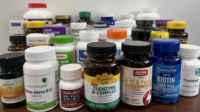
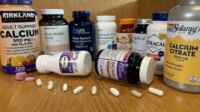
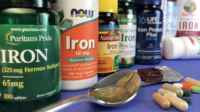


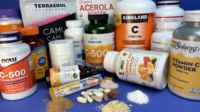
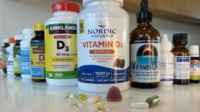





Submit your comment
This feature is restricted to active members.
Join now to add comments and get all member benefits, including over 1,400 reviews.
Join NowAlready a member? Sign in here.